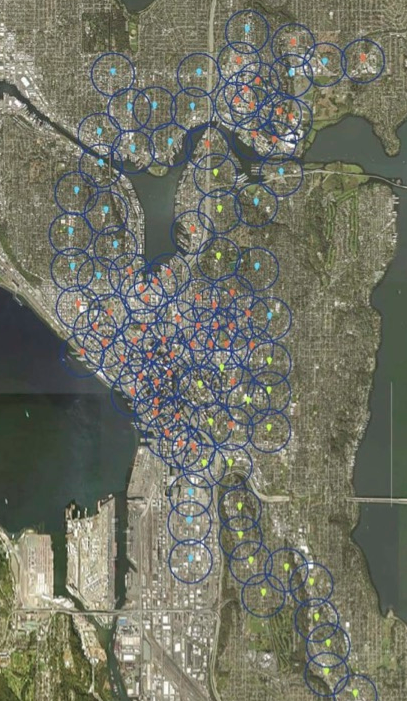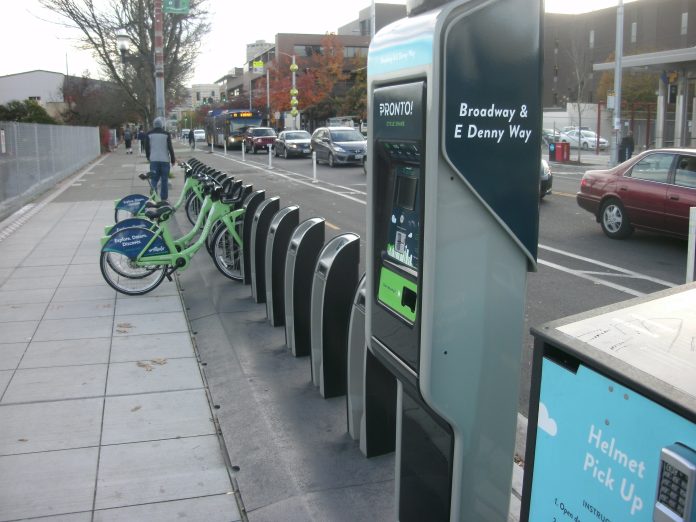In late breaking news Friday, Mayor Ed Murray announced that he has decided to end bikeshare in Seattle. The City had been working toward a temporary shutdown of Pronto in late March until a new system operated by Bewegen could be relaunched. The new bikeshare system was intended to be begin later this summer with all bikes designed with an electric-assist feature to more easily navigate Seattle’s hilly terrain. The number of bikes would have grown from 500 to 1,200 and station numbers doubling to 100 serving new districts and neighborhoods across North, Central, and South Seattle.

The city’s bikeshare system had long been plagued by low ridership numbers, in part due to Seattle’s geography, lack of bike and station density, and the discontinuous bike network. Last year, some members on the Seattle City Council had expressed concern about a last-minute push to purchase the Pronto bikeshare network after it was revealed that the non-profit was facing bankruptcy. Councilmembers Lisa Herbold and Tim Burgess had advocated for terminating the bikeshare entirely. The City Council ultimately purchased Pronto’s assets to save it and placed a proviso on expansion of the bikeshare system requiring that at least five Downtown bike routes be implemented first. A few months before, the City had been pushing to expand bikeshare city-wide, a priority that the Mayor himself championed.
In tandem with terminating bikeshare in Seattle, the Mayor announced that money pegged for the relaunched bikeshare system will be reallocated to other projects, including extension of bike lanes on Fourth Avenue in Downtown, speeding up the Center City bike network process for east-west connections, accelerating 19 Safe Routes-to-School projects, and adding curb ramps at key locations in Pioneer Square for accessibility. A total of $3 million is planned to be budgeted for these projects, but it’s not clear how that money will be moved given the City Council’s approved budget.
In a press statement, the Mayor said, “This shift in funding priorities allows us to make critical bicycle and pedestrian improvements–especially for students walking and biking to school. While I remain optimistic about the future of bike share in Seattle, today we are focusing on a set of existing projects that will help build a safe, world-class bicycle and pedestrian network.”
On the heels of the Mayor’s announcement, some City Councilmembers and safe streets advocates were already lining up to support the decision, including Councilmember Herbold and Blake Trask, Senior Policy Director of Cascade Bicycle Club. “This was absolutely the right call,” Councilmember Herbold said. “With limited public dollars, these resources are better used to develop safe routes to schools for our students. Now is not the time for public investment in a bike share system.” Meanwhile, Trask highlighted the benefit of putting money toward the Downtown bike network: “Cascade Bicycle Club applauds the Mayor for accelerating the downtown bicycle network and connecting key neighborhoods to where people live, work, play, and shop.”
In light of the Mayor’s decision, it’s not clear what future bikeshare has in Seattle now.
Stephen is a professional urban planner in Puget Sound with a passion for sustainable, livable, and diverse cities. He is especially interested in how policies, regulations, and programs can promote positive outcomes for communities. With stints in great cities like Bellingham and Cork, Stephen currently lives in Seattle. He primarily covers land use and transportation issues and has been with The Urbanist since 2014.



